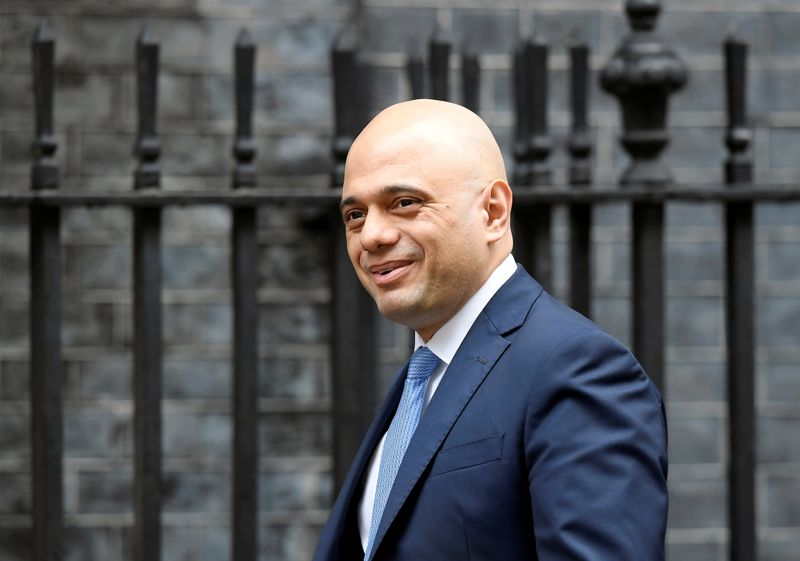
LONDON (Reuters) – Former British finance minister Sajid Javid said he would have cut income tax cut if he had not resigned this month after a clash with Prime Minister Boris Johnson.
Javid told The Times newspaper the centerpiece of next month’s budget would have been a cut from April in the basic rate of income tax to 18 pence in the pound, from 20 pence, and he had plans to reduce the basic rate to 15 pence from 2025.
In his first major interview since resigning in a clash with Johnson over the role of his advisers, Javid urged Rishi Sunak, not to tear up fiscal rules, which commit the government to balance day-to-day spending within three years when his successor delivers his first budget on March 11.
Javid said he would have paid for the income tax cuts partly through cutting waste in government spending.
“I passionately believe that where you can afford it tax cuts are a good thing and now that we have a majority, we should be much more aggressive on the tax cuts for the long term,” Javid said.
Javid said he had also planned to reduce stamp duty, would have introduced a network of fast-charging stations for electric vehicles and provided help for the five million adults lacking basic literacy and numeracy skills to retrain.
Javid quit after losing a power struggle over who should control Britain’s economy. Javid said he resigned after he refused the prime minister’s demand to sack his own team of advisers.
“In my mind it was black and white,” he said. “Even if I had entertained the idea for a second I would be absolutely humiliated afterwards.”
Sunak became finance minister after agreeing to the conditions imposed by the prime minister.
Fusion Media or anyone involved with Fusion Media will not accept any liability for loss or damage as a result of reliance on the information including data, quotes, charts and buy/sell signals contained within this website. Please be fully informed regarding the risks and costs associated with trading the financial markets, it is one of the riskiest investment forms possible.



